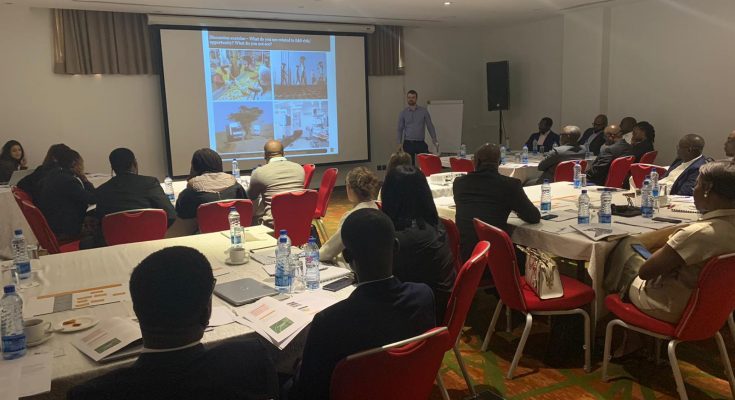Adesola Afolabi
 More than 160 participants are taking part in a four-day workshop in Lagos to learn sustainable practices for their respective businesses from CDC Group.
CDC Group is the United Kingdom’s development finance institution mandated to finance businesses across Africa and South Asia to create sustainable economic growth and jobs.
The group, which recently announced a plan to invest over £2bn (about N950bn) in African companies over the next two years, focused training at the workshop on environmental, social and governance (ESG) implementation, in partnership with Norfund.
Explaining the importance of ESG practices, Benson Adenuga, head of office and coverage director, Nigeria, CDC Group, noted that, “ESG is the cornerstone of a more sustainable future for Nigerians, be it in terms of job creation and quality or a less polluted and safer environment for the next generation." he added that "this week’s technical trainings have equipped participants with the skills and knowledge required to translate this vision into reality.”
The finance institution’s statement made available to business a.m further disclosed that the workshop has convened over 60 private equity fund managers and their portfolio companies’ leadership teams from across the continent.
More than 160 participants are taking part in a four-day workshop in Lagos to learn sustainable practices for their respective businesses from CDC Group.
CDC Group is the United Kingdom’s development finance institution mandated to finance businesses across Africa and South Asia to create sustainable economic growth and jobs.
The group, which recently announced a plan to invest over £2bn (about N950bn) in African companies over the next two years, focused training at the workshop on environmental, social and governance (ESG) implementation, in partnership with Norfund.
Explaining the importance of ESG practices, Benson Adenuga, head of office and coverage director, Nigeria, CDC Group, noted that, “ESG is the cornerstone of a more sustainable future for Nigerians, be it in terms of job creation and quality or a less polluted and safer environment for the next generation." he added that "this week’s technical trainings have equipped participants with the skills and knowledge required to translate this vision into reality.”
The finance institution’s statement made available to business a.m further disclosed that the workshop has convened over 60 private equity fund managers and their portfolio companies’ leadership teams from across the continent.
The focus was on problem-solving and learning how to persuade company management to prioritise and quantify how ESG considerations link to sustainable and long-term impact.
Discussing the timeliness of this workshop, Alex Ekpiken, vice president & (outgoing) ESG manager, Verod Capital, described CDC’s ESG training programme as coming at an important time for the sustainability agenda, “which is now at the front and centre of the private equity industry in Nigeria and across the continent. As the programme has shown, implementing rigorous ESG standards makes sense not only because it’s the right thing to do, but also because it leads to better commercial performance.”
Participating companies at the workshop included leading Nigerian private equity managers such as Africa Capital Alliance and Verod Capital Management, alongside pan-African private equity firms including AfricInvest. Participants ranged from fund managers, investment officers, board members, ESG officers, impact officers, managing directors, and human resources directors and managers at portfolio company level.
In his comments, Guy Alexander, manager, environment and social responsibility, CDC Group said, “We are delighted to have convened such a broad range of fund managers from Nigeria and across the continent. There is a real appetite among fund managers to learn more about ESG and its implementation, both within funds and portfolio companies. We are encouraged by this enthusiasm and look forward to continuing supporting private equity firms and their portfolio companies at a time when ESG and sustainability are becoming more important than ever.”
The training was noted to have included a wide range of modules covering the integration of ESG into investment cycles, the International Finance Corporation’s (IFC) performance standards, implementing environmental and social management system within portfolio companies, measuring impact, and addressing novel issues such as data privacy or the circular economy.
The programme also included a session on effective workforce management to drive business success, gender equality and women’s economic empowerment across corporate value chains, as well as a module on the risks and opportunities posed by climate change. Finally, the workshop included a board level training on ESG and business integrity, which focused on how board and senior executive directors can take responsibility for the sustainability agenda within their companies.